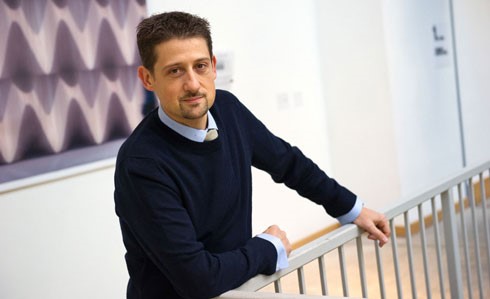Department of Nuclear Engineering

All Events
- This event has passed.
Seminar: Can We Deliver a Truly Predictive Method for Critical Heat Flux
October 25, 2018 @ 4:00 pm - 5:00 pm
Event Navigation
Dr. Emilio Baglietto
Massachusetts Institute of Technology (MIT)
Department of Nuclear Science and Engineering
Abstract
Multiphase flow and heat transfer are fascinating and inherently complex processes to model. They have challenged the scientific community for decades and hide mysteries that we are only recently uncovering. This talk will describe the effort, potential and discoveries on route to the delivery of a truly predictive method to describe departure from nucleate boiling. The approach leverages a tight interaction between experimental and modeling work to derive and implement methods based on improved physical understanding. The first critical challenge is the accurate prediction of void fraction and velocity distribution inside boiling channels, which in the computational Eulerian-Eulerian framework is enforced by the phase momentum equations closure terms representing the interfacial forces in the stream-wise and lateral flow directions. Departing from legacy integral approaches, a more complete representation of lateral lift force and near wall effects are proposed, in combination with DNS driven understanding of bubble induced turbulence effects. The improved description of the multiphase flow distribution is coupled to a subgrid-scale representation of boiling heat transfer, to correctly represent the meso-scale phenomena, which are crucial to capturing the heat flux partitioning at the boiling surface, but cannot be resolved by the computational grid. The representation of the micro-hydrodynamics of the thin liquid film on the heated surface is the key to resolving the mechanisms governing the CHF limit. The intrinsic postulation is that the combination of detailed 3-dimensional flow predictions, and accurate mesoscale physical description, will allow representing the self-exciting process leading to critical heat flux.
Biography
Professor Baglietto is a PhD Graduate of the Tokyo Institute of Technology, and currently the Norman C. Rasmussen Associate Professor of Nuclear Science and Engineering at the Massachusetts Institute of Technology (MIT). His research goals include improving the effectiveness and expanding the reach of 3-D, first-principles computational tools for nuclear reactor design. He notes that this work is applicable at the micro scale, to better understand physical interactions; at the component scale, to optimize designs; and at the full-system level, to validate new designs while taking into account complex system interactions. As a result, the technology promises to be a starting point for entirely new generations of innovation in a wide range of areas. He covers the role of Thermal Hydraulic Focus Area Lead for the Consortium for Advanced Simulation of Light-Water Reactors (CASL), the largest US Department of Energy program in the Nuclear Energy field.

